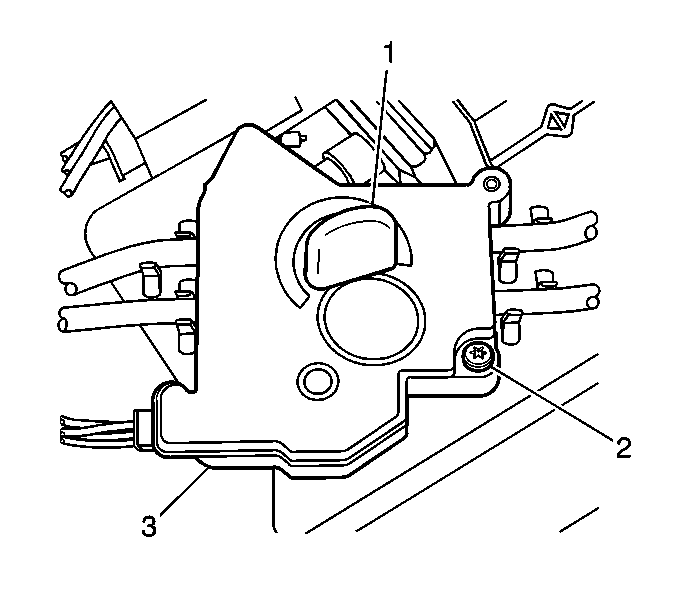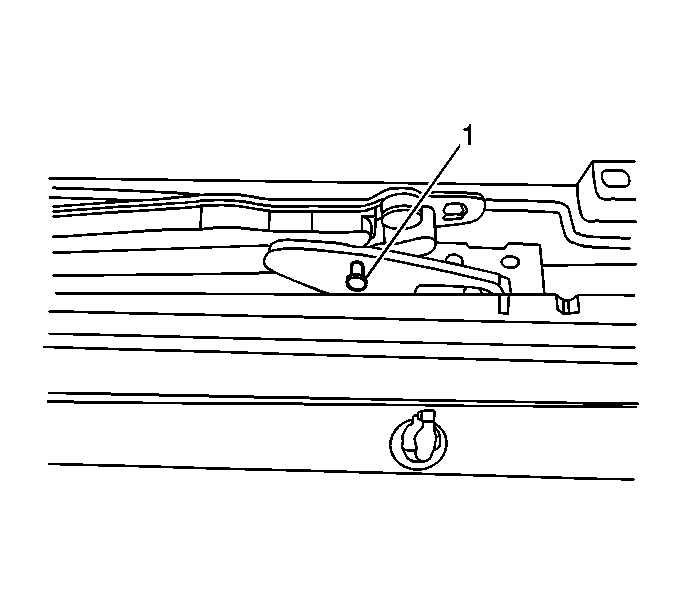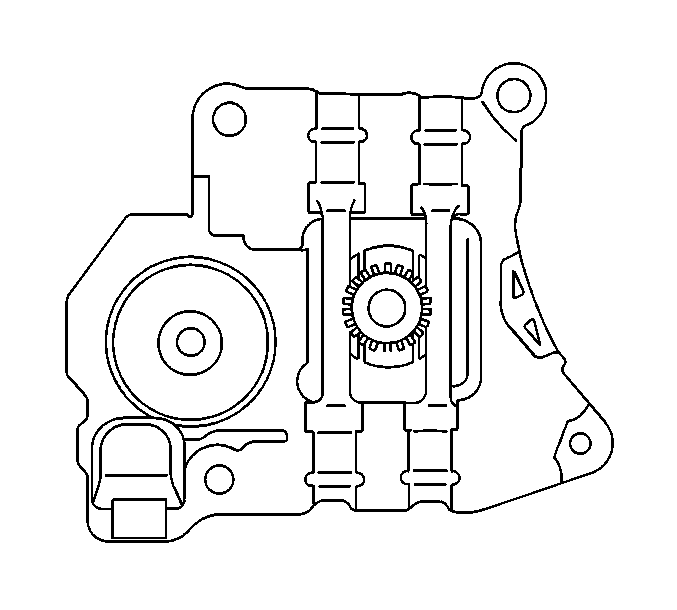Removal Procedure
- Move the sunroof to the closed position.
- Remove the sunroof glass panel. Refer to Sunroof Glass Panel Replacement .
- Remove the sunroof module. Refer to Power Sunroof Module Replacement .
- If you reuse the SPE switch, insert the position lock pin (1) in order to lock the SPE switch in the closed position.
- Remove the sunroof motor. Refer to Power Sunroof Motor Replacement .
- Disconnect the electrical connector from the SPE switch (3).
- Remove the screw (2) which secures the SPE switch to the sunroof module.
- Hold down on both of the drive cables. Lift up on the SPE switch in order to remove the switch from the sunroof module.
Important:
• Remove the headliner. Refer to
Headlining Trim Panel Replacement
in Interior
Trim. • The sunroof positioning encoding (SPE) switch is aligned to the drive
cables. The SPE switch comes from the factory set to the sunroof glass panel
CLOSED position. A position lock pin has been installed by the factory on
the top of the SPE switch. This pin must remain until after the installation
of the sunroof actuator and of the SPE switch. This lock pin locks the drive
gears in place and must be removed before the complete sunroof module is
installed to the vehicle. • If the SPE switch is removed for inspection, the sunroof must be in
the CLOSED position. A position lock pin must be inserted. If a position
lock pin is not available, place 2 wires, such as the ends of a paper clip,
in the holes.

Installation Procedure
- Use a flat-bladed tool if you adjust the cable mechanism and/or the cam mechanism in order to align the cable and/or the cam timing holes.
- Keeping the position lock pin on the new SPE switch, align the switch over the drive cables.
- Apply pressure to the SPE switch until the switch is completely seated.
- Install the screw which secures the SPE switch to the sunroof module.
- Connect the electrical connector to the SPE switch.
- Install the sunroof motor. Refer to Power Sunroof Motor Replacement .
- Remove the position lock pin (1).
- Remove the 2 alignment pins from the cable mechanisms and/or from the cam mechanisms.
- Install the sunroof module, but do not install the headliner until after the sunroof operation has been verified. Refer to Power Sunroof Module Replacement .
- Verify the operation of the sunroof module.
- Install the sunroof glass panel. Refer to Sunroof Glass Panel Replacement .
- Install the headliner. Refer to Headlining Trim Panel Replacement in Interior Trim.

Important: The cable mechanisms and/or the cam mechanisms, on both sides of the glass, contain a set of timing holes. These holes are aligned in the CLOSED position of the sunroof glass panel . These holes are located on the side opposite the rear screw hole, which is used in order to mount the sunroof glass panel. When installing a new sunroof position encoding (SPE) switch, set the sunroof glass panel to the CLOSED position.
When the timing holes are aligned, insert a pin with diameter 0.0317 mm (1/8 in) or a drill bit (1) into each set of the timing holes. Use tape in order to hold each pin in place.
Important: The SPE switch comes from the factory with a position lock pin that is installed on top of the switch. This locks the timing gears in place. Do not remove the position lock pin until after the SPE switch and the actuator are installed.

If the switch does not slide into position, the ridges on the drive cable housings will not go into the grooves on the back of the SPE switch. Lift each cable into the switch, and press down on the assembly until the assembly is completely seated.

Notice: Use the correct fastener in the correct location. Replacement fasteners must be the correct part number for that application. Fasteners requiring replacement or fasteners requiring the use of thread locking compound or sealant are identified in the service procedure. Do not use paints, lubricants, or corrosion inhibitors on fasteners or fastener joint surfaces unless specified. These coatings affect fastener torque and joint clamping force and may damage the fastener. Use the correct tightening sequence and specifications when installing fasteners in order to avoid damage to parts and systems.
Tighten
Tighten the screw to 3.4 N·m (30 lb in).
